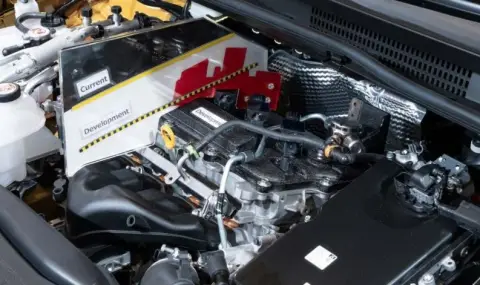Toyota chairman Akio Toyoda predicts that the market share of battery-powered electric vehicles will never exceed 30 percent. For this reason, the Japanese automaker continues to develop internal combustion engines. A new family of four-cylinder engines was announced this week.
They will run on conventional fossil fuels as well as carbon-neutral fuels such as liquid hydrogen, synthetic fuels and biofuels. The new 1.5-liter naturally aspirated engine is approximately 10 percent more compact than the current engine. Despite the reduced di lasmers, it will become not only more powerful, but also more efficient. Fuel economy is estimated to be approximately 15 percent.
Specific power and fuel economy details have yet to be released as the four-cylinder engine is still under development. Toyota already installed it in a prototype Prius and showed it separately. The company is so confident in its new engine that it says its new engines will “revolutionize vehicle layout” thanks to its reduced footprint.
By making them smaller, Toyota can reduce the hood of the car, making it more aerodynamic to further improve fuel economy. The second engine in development is a turbocharged 1.5-liter four-cylinder. It will be 20 percent smaller in volume than the naturally aspirated 2.5-liter engine currently used. At the same time, the height will decrease by 15 percent.
It will be about the same power, but with a significant increase in efficiency, about 30 percent. The most powerful of the group will be a 2.0-liter unit with a turbocharger. Compared to the existing 2.4-liter turbo engine, the new unit has a 10 percent smaller displacement and benefits from a 10 percent reduction in height. Toyota promises significantly more power and 30 percent better fuel efficiency.
The new engines are optimized for hybrid and plug-in hybrid systems. The Financial Times quoted a person familiar with Toyota's program as saying that the four-cylinder engines will debut in the Japanese brand's electrified cars by the end of 2026. It is also interesting that some of the new engines will also use diesel, reports the FT.
